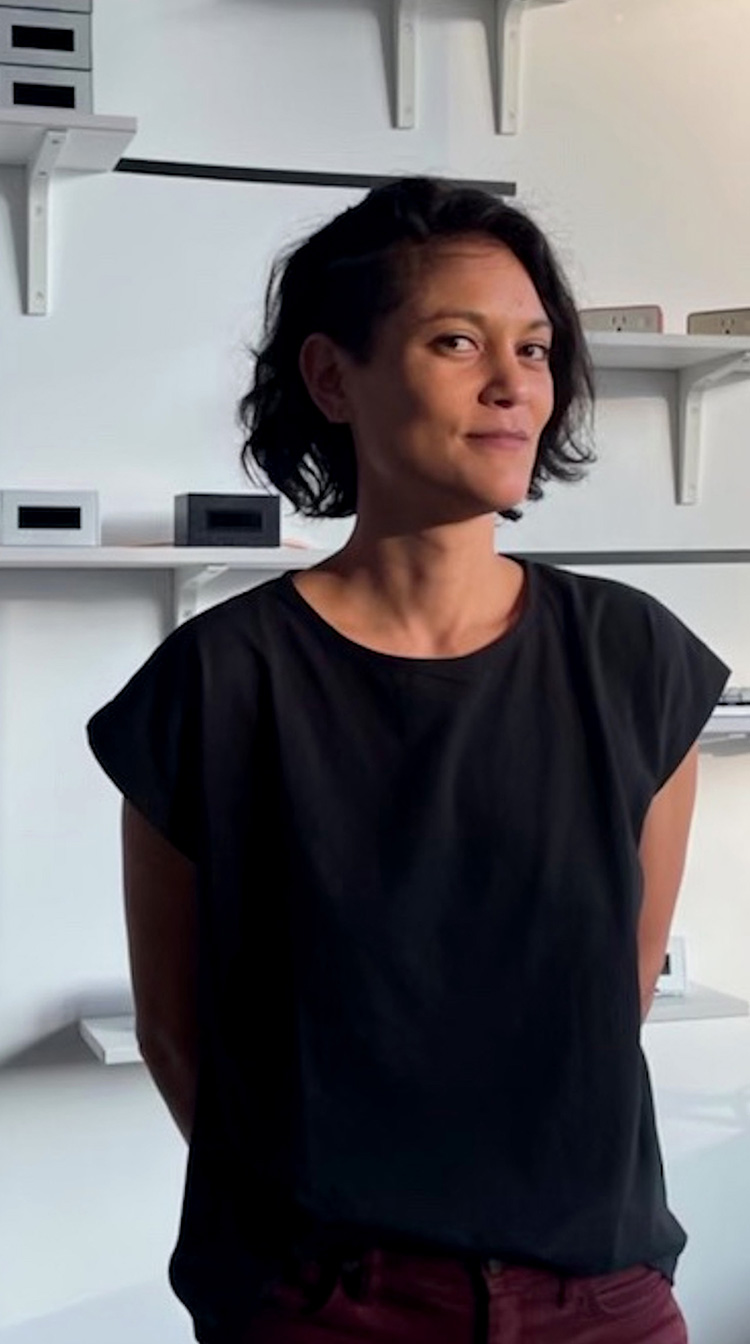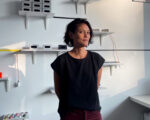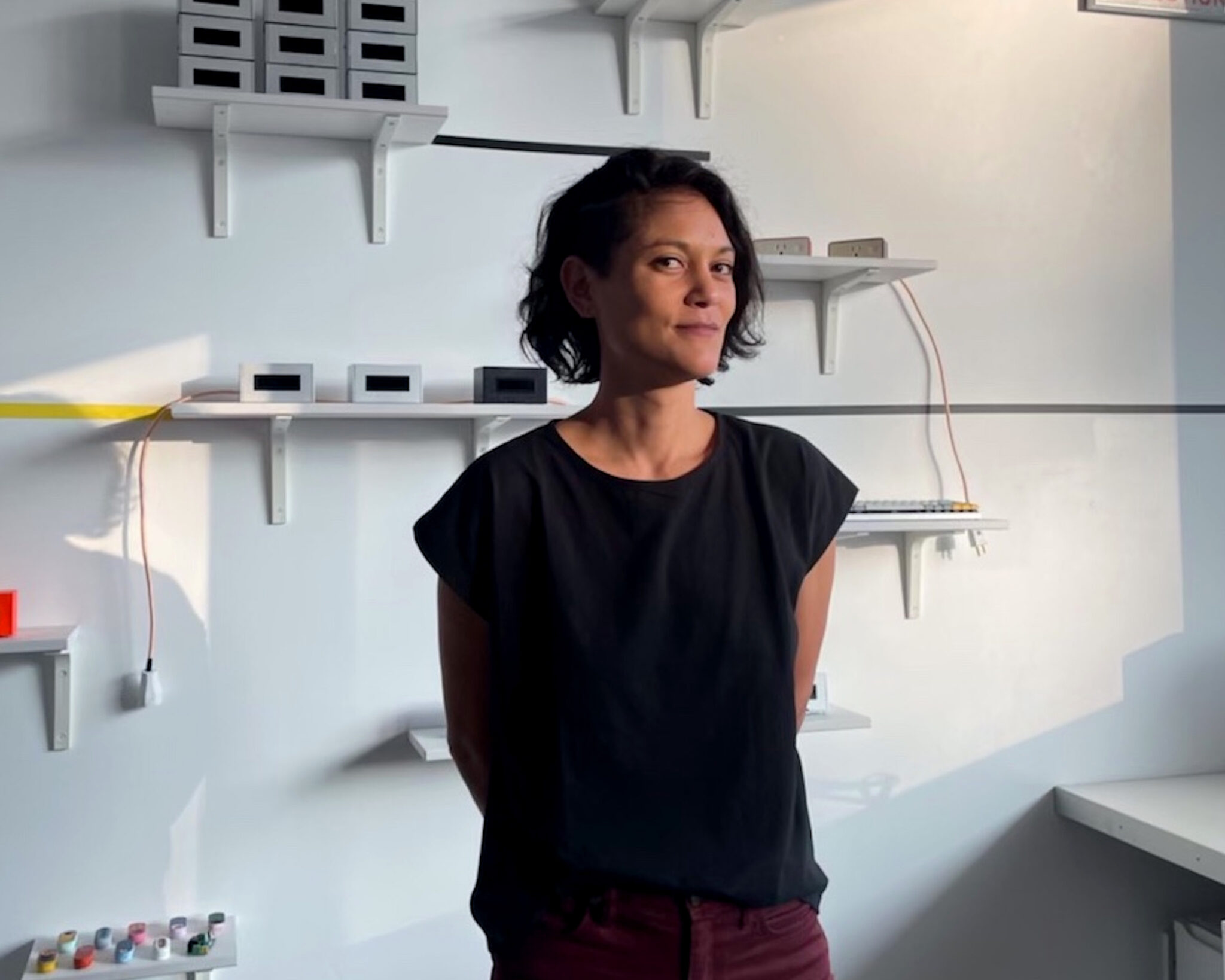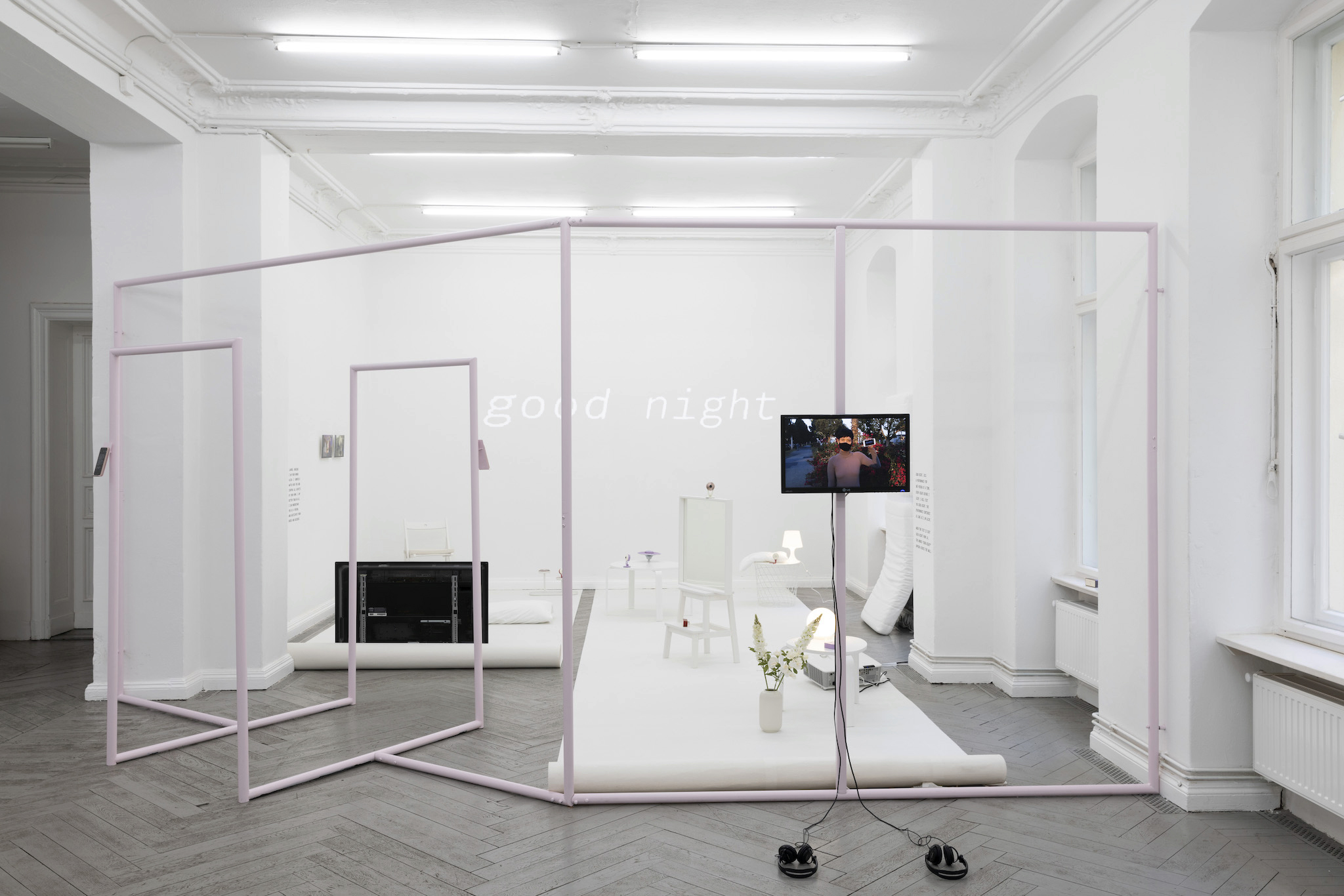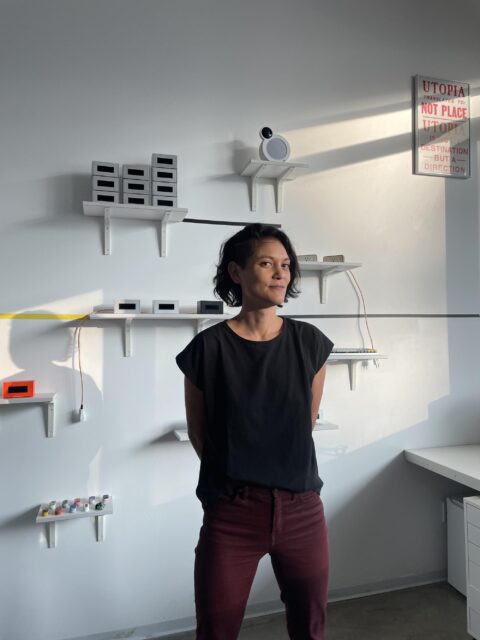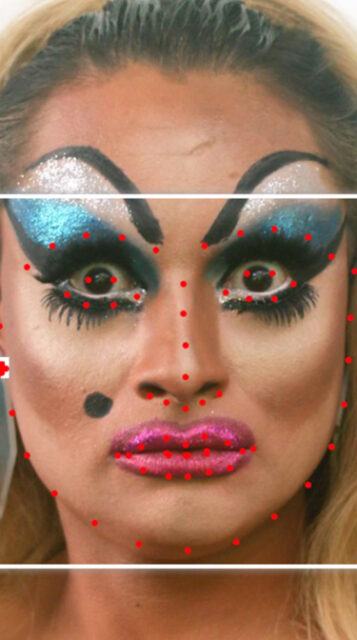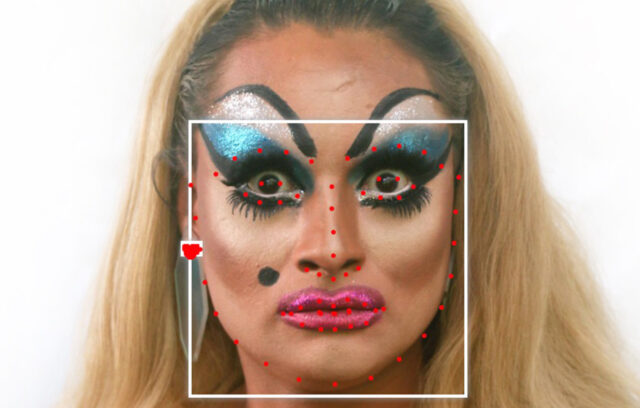How do you characterize the media you work in?
I work with a lot of different media; performance is at the core of my practice, but I also work with software, film, installation, text, sound, objects, et cetera. I’m interested in art that takes unexpected forms and exists in media that maybe you didn’t realize could be a medium for art.
How does your practice engage with technology?
The focus of my work is how we connect or interact as people, which is shaped by the technology and systems we build around ourselves particularly as our lives become increasingly technologically based. While some of my work is not necessarily overtly technologically oriented, it is responding to the conditions of being a human right now, which implicitly engages with technology.
What was your focus during your time at Eyebeam?
For the first residency with Eyebeam, I collaborated with Kyle McDonald on a project called pplkpr, which was engaged with lifelogging and device tracking. The question we posed was: what if an app optimized social relationships, measuring and analyzing the emotional impact that each person had on you as you went about your day, and then blocked certain contacts or auto-messaging people to keep relationships going? The most recent Eyebeam fellowship during the pandemic involved a collaboration with Grace Lee and Tony Patrick called Beyond the Breakdown. We wondered how we might imagine the world we want to see in this crisis moment and made a scripted AI-driven experience that brought people together online.
